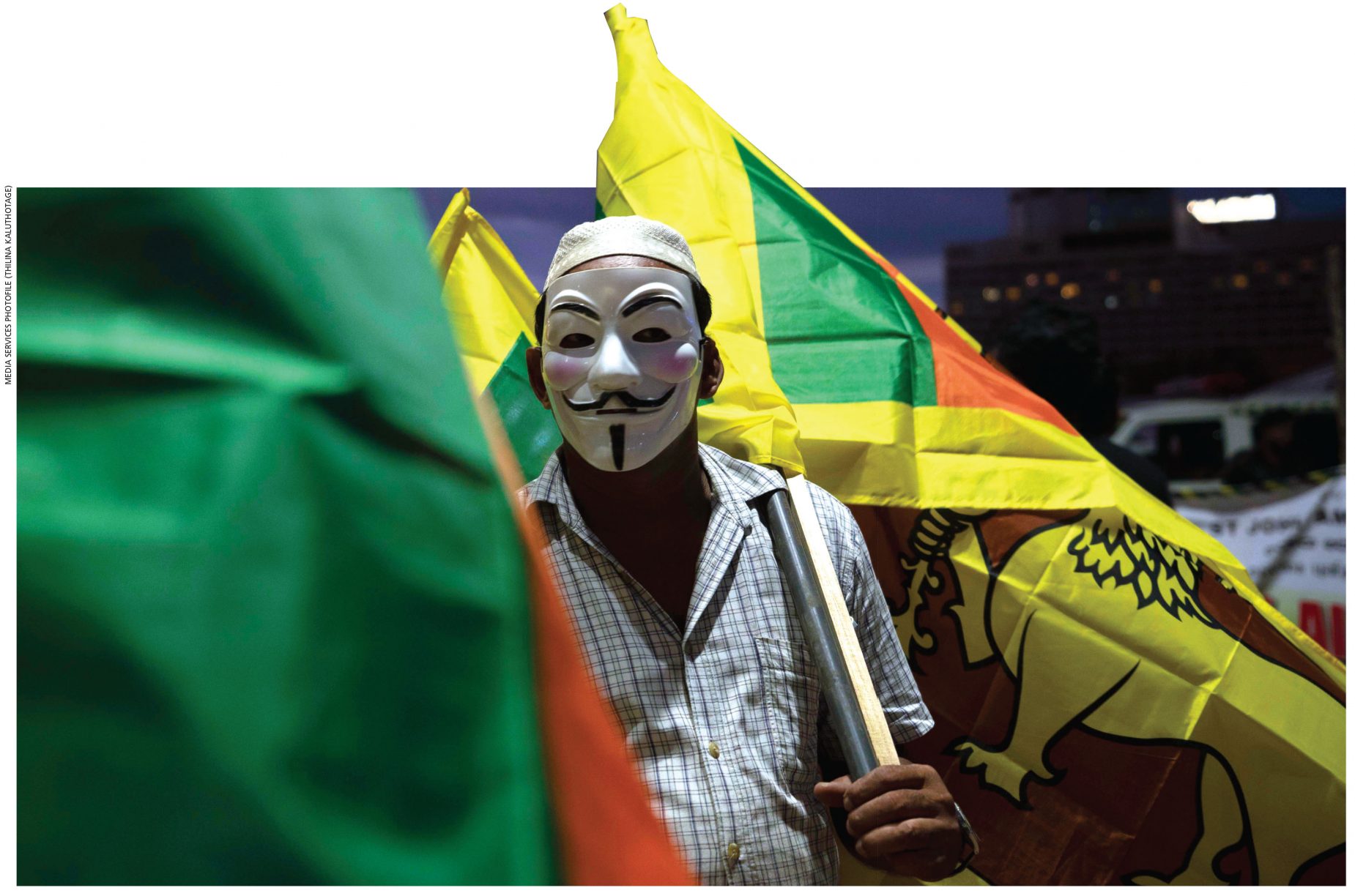STATE OF THE NATION
CHANGE? NOTHING NEW UNDER THIS WAN SUN!
Wijith DeChickera notes that the more things change, the more they stay the same; and the more people protest, the less government cares
Political stability has managed to evade even previously sanguine nation states all over the world. A prime example would be the UK where in the past six months alone, there have been a brace of constitutional monarchs and their next in lines, a trio of prime ministers and a quartet of chancellors of the exchequer.
To add insult to injury, not one of these baker’s dozen of British rulers or leaders have been democratically elected!
So Sri Lanka isn’t the only longstanding republic where the people’s mandate hasn’t been worth much more than the paper on which the ballots were cast.
In countries where there is no right of recall (though petition, referendum or representation) to evict legislators whom the populace once returned to parliament in the high hopes electoral aspirations would be met, there’s a sense only the notion of popular sovereignty in action – as seen in Sri Lanka during the aragalaya – could redress the imbalance between voter preferences and parliamentary wilfulness.
This is heightened in a society where for all the people’s movements based on civil and constitutional rights, it seems that the more a government changes, the more its gubernatorial ethos stays the same – that is to say, authoritarian – as if nothing happened this year to take the political powers that be in general and executive presidents in particular down a peg or two; tone-deaf; and blithely agnostic to people’s pleas.
In a milieu where push back from the state against its critics continues, deploying arbitrary arrests and detention under draconian laws more suitable for a nation at war with itself (or defending the realm against external threats such as terrorism) – not the pitiful clenched fists of citizens half-starved, and desperate to feed themselves and their children – it is a crime against state, society and humanity to blatantly safeguard one’s power.
However, there’s always cause for hope the traditional resort of polities bone weary of their elected representatives would come to the fore in due time: namely, that (yet another – and yes, costly but even costlier not to conduct) election would set the ship of state aright again.
There is a possibility of course, that as Italy followed EU nations Spain, France and Sweden into far right-wing territory for the first time in September after a parliamentary impasse, the same could happen in wintry Sri Lanka also, given that an artificially engineered nationalistic cabal in situ, which is backed by big names of the past, continues to hold a country demanding a raft of elections to ransom.
Little if any executive power has been checked by the recently ratified 22nd Amendment to the Constitution (22A) as was ideally – it seems idealistically – envisaged when two successive presidents were on the back foot… one after ‘mistakes made’ as a result of ignorance and/or blindly following bad advice that led to bankrupting the nation; the other, a longtime governor with no grassroots appeal and all the arrogance of the unelected.
Au contraire, the position of a president who rode into power on the backs of people, then agitating against an arrogant regime and equally opposed to a still authoritarian one at this time, has been consolidated by a cabal that is intent on keeping the same lot in clover – all the while pulling the wool over eyes of people who would rather be hung for lambs than sheep.
True, we needed a cool, calculating and even cynical head to guide us through the rapids – but must navigating the Scylla of extreme sociopolitical agitation and the Charybdis of securing an IMF board-approved bailout in the wake of a staff-level agreement come at the price of ignoring ongoing calls for significant political reform – and not the insubstantial sops to Cerberus that the incumbents offer?
We could be stuck with a kleptocratic, kakistocratic, mandate-less government more interested in constructing Potemkin villages requiring inordinate investment (viz. cabinet recently approved constructing another segment of the Central Expressway, borrowing Rs. 31.7 billion from foreign and domestic sources) at a time when an estimated 5.7 million people are facing food insecurity, according to the World Food Programme (WFP).
But in the face of electoral swings in other democracies – for example, Brazil (where its superior electoral court declared leftist former president Luis Inácio Lula da Silva the winner in a runoff in October that ousted incumbent far-right chief executive Jair Bolsonaro), there is cause for hope that long overdue provincial polls and ‘must-have’ general elections (if the people’s mandate is to be restored and more accurately reflected) will redress imbalances.
A sea change into something rich and strange – such as governors with their ears to the ground, hats in hand and ready to eat humble pie if the people reject them, and a sophisticated electorate that finally distinguish between champions of the masses and mercenary charlatans?
It is what democrats dream of under a dull December sun – and demagogues and other rogues who have robbed Sri Lanka of its rupees as much as its robustness dread.






